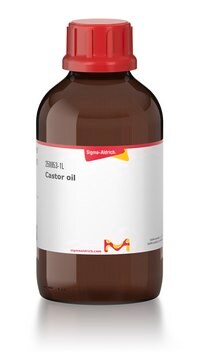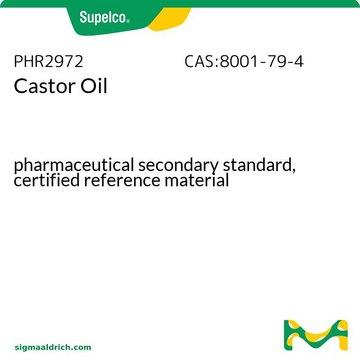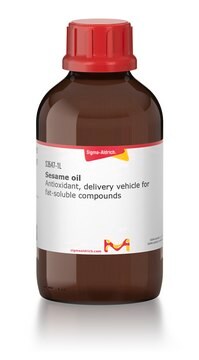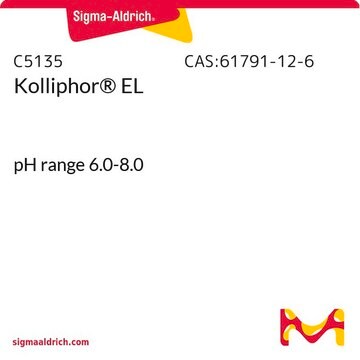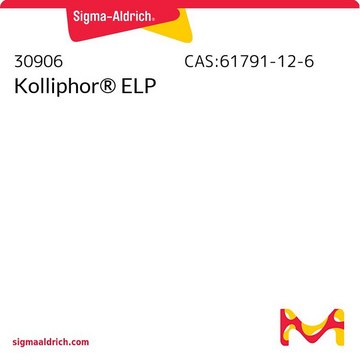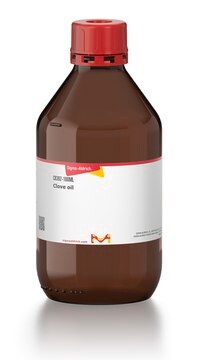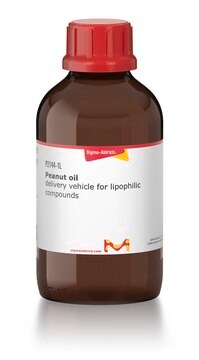C9606
Castor oil
meets testing specifications per USP
About This Item
Produits recommandés
Source biologique
Ricinus communis
Niveau de qualité
Agence
USP/NF
meets USP testing specifications
Forme
viscous liquid
Qualité
meets testing specifications per USP
Indice de réfraction
n20/D 1.478 (lit.)
pb
313 °C (lit.)
Densité
0.961 g/cm3 at 25 °C
Type de lipide
oils
Conditions d'expédition
ambient
Température de stockage
room temp
Chaîne SMILES
O(C(COC(=O)CCCCCCC\C=C/CC(O)CCCCCC)COC(=O)CCCCCCC\C=C/CC(O)CCCCCC)C(=O)CCCCCCC\C=C/CC(O)CCCCCC
Clé InChI
ZEMPKEQAKRGZGQ-AAKVHIHISA-N
Vous recherchez des produits similaires ? Visite Guide de comparaison des produits
Catégories apparentées
Application
- Selection of lubricant type and concentration for orodispersible tablets: This study evaluates the efficacy of various lubricants, including castor oil, for use in the pharmaceutical industry, specifically in the manufacturing of orodispersible tablets (Yi Zheng A et al., 2024) (doi: 10.1016/j.ijpharm.2024.124190).
- Polymers from Plant Oils Linked by Siloxane Bonds for Programmed Depolymerization: Focuses on the synthesis of innovative polymers from castor oil, linked via siloxane bonds, aimed at enhancing the sustainability of material production through easier depolymerization (Cheng C et al., 2024) (doi: 10.1021/jacs.4c01982).
- Mechanical properties and curing kinetics of bio-based benzoxazine-epoxy copolymer for dental fiber post: Explores the use of castor oil in the creation of bio-based benzoxazine-epoxy copolymers, focusing on their mechanical properties and curing kinetics, with applications in dental materials (Mora P et al., 2023) (doi: 10.1186/s40643-023-00684-x).
Code de la classe de stockage
10 - Combustible liquids
Classe de danger pour l'eau (WGK)
nwg
Point d'éclair (°F)
Not applicable
Point d'éclair (°C)
Not applicable
Équipement de protection individuelle
Eyeshields, Gloves
Faites votre choix parmi les versions les plus récentes :
Déjà en possession de ce produit ?
Retrouvez la documentation relative aux produits que vous avez récemment achetés dans la Bibliothèque de documents.
Les clients ont également consulté
Notre équipe de scientifiques dispose d'une expérience dans tous les secteurs de la recherche, notamment en sciences de la vie, science des matériaux, synthèse chimique, chromatographie, analyse et dans de nombreux autres domaines..
Contacter notre Service technique